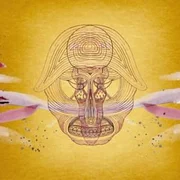When I Was Your Man de Cruzito
Letra de When I Was Your Man
Part I:
We are adjured constantly to study and make ourselves familiar with the lives, doings and sayings of the Wise because a link of understanding exists between these factors and the potentiality in ourselves.
But if, as have the literalists, we soak ourselves in these elements from motives of greed or marveling at wonders, we will transform ourselves indeed; but the transformation will be animal into lesser animal, instead of animal into man.
The test which is placed in man's way is to separate the real Seekers from the imitation ones by this very method. If man has not addressed himself to this study through his simplest and most sincere self he will be in peril. It is therefore better, did man but know it, to avoid all metaphysical entanglements rather than to allow himself to be acted upon by the supreme force which will amplify, magnify, his faults if he lacks the knowledge of how to cure the fault, or of how to approach the teaching so that his faults are not involved in the procedure.
It is for this reason that we say that there are many different spheres, levels, of experience of the truth.
The Wise have always concentrated upon making sure that their disciples understand that the first stage towards knowledge is to familiarize themselves with the outward, factual, appearance of that knowledge, so that, preventing it from rushing into the wrong area of their minds, it might await development when the possibilities exist.
This is the analogy of a man taking a pomegranate and keeping it until his stomach is in a condition to digest it correctly. If a man eats a pomegranate when there is something wrong with his stomach, it will make the ailment worse.
One manifestation of man's ailment is to want to eat the pomegranate at once. Should he do this, he will be in serious difficulties.
Now you have the explanation as to why the Wise continually supply materials to be stored in the heart, as grain is stored, with a view to the making of bread. Because this is experience and not grain, man in his crudity does not customarily feel able to understand this great truth and secret. The man to whom we speak is, therefore, a specially attuned sort of man - "The Generous Miser" - that is, the man who can hoard when hoarding is indicated, and who will make available that which there is as and when it is able to exercise its optimum effect.
I was mystified for many months by my esteemed mentor's giving me things to speak, to think and do which did not seem to satisfy my craving for the spiritual life. He told me many times that the craving which I felt was not for spirituality at all, and that the materials which he was giving me were the nutritions which I needed. It was only when I was able to still my maniac desires that I was able to listen to him at all. At other times I said to myself, 'I have heard all this before, and it is highly doubtful', or else, 'This is no spiritual man', or, further, 'I want to experience, not to listen or to read.'
The wonderful thing was this, that my teacher continually reminded me that this was my state of mind, and although I was outwardly trusting him and serving him in everything. I was not able to trust him to the necessary extent, nor in the vital direction. Looking back, I realized later that I was willing at that time to yield far more far-reaching parts of my sovereignty than were needed; but I was not prepared to yield the minor ones which alone were the pathways to my understanding.
I refer to this because it is by rehearsal of the experience of others that people at a similar stage in the Path may be able to recognize their own state and profit by it.
I remember that I was always magnetized, transfixed by the dramatic, and became attentive whenever anything of great stimulation was said or done, but that the significant factors in my association with my teacher were the ones which I missed, sometimes almost entirely. Because of this, in spite of being continually employed in the work, I wasted as much as eight years of my life.
Then it must be remembered that there are the two kinds of everything. This is something which we normally do not imagine as existing, but it is fundamental. There is the keeping of company with a wise man and learning from him, in the right way, which is productive of human progress. Then there is the counterfeit, which is destructive. What makes us completely confused in this matter is that the feeling which accompanies the false discipleship or the ordinary keeping company, as well as its external manifestations in courtesy and seeming humility, is so able to make us imagine that we are religious or dedicated people that it is possible to say that this is due to what has been called the entry of a demonic, counterfeiting power, which persuades most of the very distinguished and compelling spiritually reputed people and also their followers, even down the generations, that they are dealing in spirituality. It even enables them to communicate this belief to those who are not of their number, so that their reputation gains credibility through the very people who misguidedly say, 'I do not follow his path, but I do not deny that he is a spiritual and a good man...'
The only corrective to this is the making use of the special-occasion timing by the Master who alone is able to say as to when and where and in what manner the exercises and other activities, even those which do not appear to have the smallest connection with spirituality, may be carried on. There is a confusion here because this is sometimes taken to mean that one must never read books or carry out processes without the direct supervision of the Master. But this common and shallow mistake is seen to be absurd when we realize that the Master may specify courses or reading or action for a number of people or for an individual, and that he may find it necessary from time to time for these to take what seems a conventional, indeed, a seemingly scholastic course. But what is vital here is not how things appear to the student, but that the Master has prescribed them and that he will intervene as and when there is a need for a change. All manifestations of opposition to this curriculum or any other disharmony with the Master are manifestations of the rawness of the pupil, and may not be taken into consideration by the Master or any of his intermediaries (deputies) since the student can either follow the course dutifully or he cannot. If he cannot, he ceases at that moment to be a student, and hence has no right even of comment. Only true students have the right of comment, and those who draw attention to themselves by questioning the course itself are not in the condition of being students at all. Failure to observe this is common among scholastic emotionalists who have adopted Sufi procedures, because they do not realize that the curriculum is already erected on the basis of all the possible contingencies which include any and all feelings of the pupils. What is aimed at here is the operation of the teaching through the capacity. If he is disturbing the progress of the session or the work of the deputy, he is the opposite of a student, and this should be observed as a lesson by the company.
I am well aware that the principles are far from the accepted ones in the shallow world which is balanced on the basis of what people think of one another, including the problem which false teachers continually feel, which is the question of what other people think of them. But the central factor is whether the Teaching is operating, not whether people feel through their ordinary senses that they are being fulfilled.
In the latter case, you may be sure that nothing of real worth is happening at all.
This is the end of the first section of the Testimony of Bahaudin Naqshband - the Designer.
Part II: Counsels of Bahaudin
You want to be filled. But something which is full has first to be emptied. Empty yourself so that you will fill properly, by observing these counsels, which you can do as duties to your self:
FIRST
Never follow any impulse to teach, however strong it might be. The command to teach is not felt as an impulsion.
SECOND
Never rely upon what you believe to be inner experiences because it is only when you get beyond them that you will reach knowledge. They are there to deceive you.
THIRD
Never travel in search of knowledge unless you are sent. The desire to travel for learning is a test, not a command.
FOURTH
Never trust a belief that a man or a community is the supreme one, because this feeling is a conviction, not a fact. You must progress beyond conviction, to fact.
FIFTH
Never allow yourself to be hurt by what you imagine to be criticism by a teacher, nor allow yourself to remain elated by cause of praise. These feelings are barriers in your way, not conductors of it.
SIXTH
Never imitate or follow a man of humility who is also mean in material things, for such a man is being proud in material things. If you are mean, practice generosity as a corrective, not as a virtue.
SEVENTH
Be prepared to realize that all beliefs which were due to your surroundings were minor ones, even though they were once of much use to you. They may become useless and, indeed, pitfalls.
EIGHTH
Be prepared to find that certain beliefs are correct, but that their meaning and interpretation may vary in accordance with your stage of journey, making them seem contradictory to those who are not on the Path.
NINTH
Remember that perception and illumination will not at first be of such a character that you can say of them 'This is perception' or 'This is illumination.'
TENTH
Never allow yourself to measure everything by means of the same time measurement. One thing must come before another.
ELEVENTH
If you think too much of the man, you will think in a disproportionate manner about the activity.
If you think too much about yourself, you will think wrongly about the man. If you think too much about the books, you will not be thinking correctly about other things. Use one as a corrective for the others.
TWELFTH
Do not rely upon your own opinion when you think you need books and not exercises. Rely less upon your belief when you think you need exercises and not books.
THIRTEENTH
When you regard yourself as a disciple, remember that this is a stage which you take up in order to discover what your true distance is from your teacher. It is not a stage which you can measure, like how far you stand from a building.
FOURTEENTH
When you feel least interested in following the Way which you have entered, this may be the time when it is most appropriate for you. If you imagine that you should not go on, it is not because you are not convinced or have doubts. It is because you are failing the test. You will always have doubts, but only discover them at a useful time for your weakness to point them out.
FIFTEENTH
Banish doubt you cannot. Doubt goes when doubt and belief as you have been taught them go. If you forsake a path, it is because you were hoping for conviction from it. You seek conviction, not self-knowledge.
SIXTEENTH
Do not dwell upon whether you will put yourself into the hands of a teacher. You are always in his hands. It is a question of whether he can help you to help yourself, for you have too little means to do so. Debating whether one trusts or not is a sign that one does not want to trust at all, and therefore is still incapable of it. Believing that one can trust is a false belief. If you wonder, 'Can I trust?' you are really wondering, 'Can I develop a strong enough opinion to please me?'
SEVENTEENTH
Never mistake training for ability. If you cannot help being what people call 'good' or 'abstemious', you are like the sharpened reed which cannot help writing if it is pushed.
EIGHTEENTH
When you have observed or felt emotion, correct this by remembering that emotions are felt just as strongly by people with completely different beliefs. If you imagine that this experience - emotion - is therefore noble or sublime, why do you not believe that stomach ache is an elevated state?
NINETEENTH
If a teacher encourages you, he is not trying to attach you to him. He is trying, rather, to show you how easily you can be attracted. If he discourages you, the lesson is that you are at the mercy of discouragement.
TWENTIETH
Understanding and knowledge are completely different sensations in the realm of Truth than they are in the realm of society. Anything which you understand in an ordinary manner about the Path is not understanding within the Path, but exterior assumption about the Path, common among unconscious imitators.
Traducción de When I Was Your Man
Letra traducida a Español
Traducción de la letra.0
0
Tendencias de esta semana
Datos no encontrados






